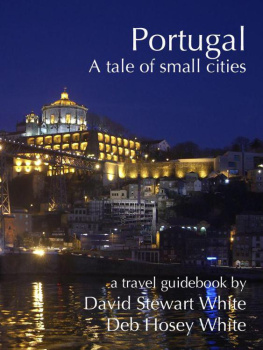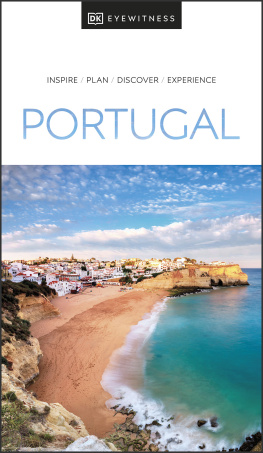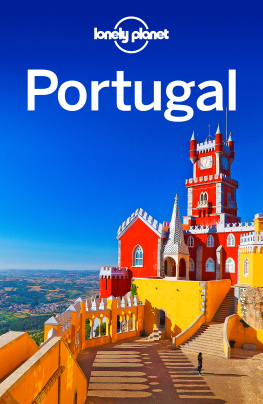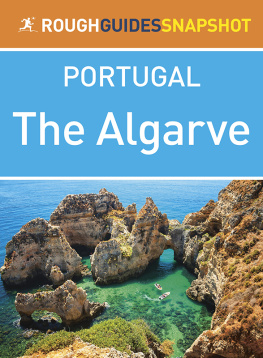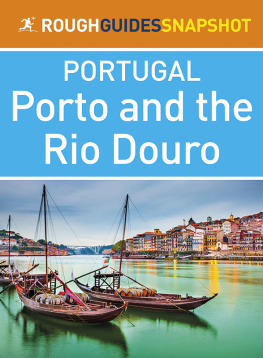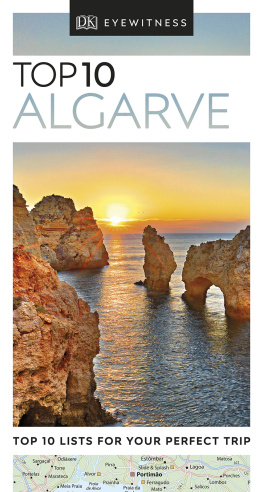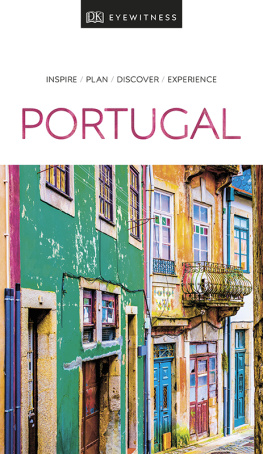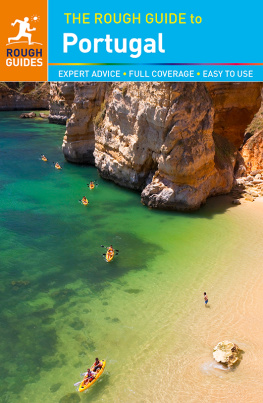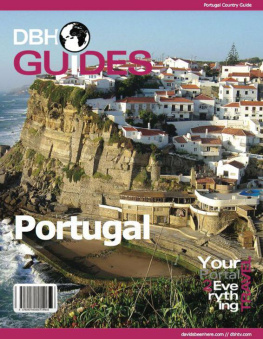
Portugal
A Tale of Small Cities
A travel guide
by
David Stewart White
and
Deb Hosey White
Also By The Authors
Beyond Downton Abbey
(Volume 1)
by Deb Hosey White and David Stewart White
Beyond Downton Abbey
(Volume 2)
by Deb Hosey White and David Stewart White
Let's Take the Kids to London
by David Stewart White
Pink Slips and Parting Gifts
by Deb Hosey White
Portugal
A Tale of Small Cities
by
David Stewart White
and
Deb Hosey White
All Rights Reserved 2013 by White & Associates
ISBN: 978-0-9829179-7-8
For more information about this book, please visit our website
Like us on Facebook and follow us on Twitter
Cover image:
Porto at night
David Stewart White
A Tale of Small Cities
Whatever happened to Old Europe? our next-door neighbor asked. The last time we were there it seemed like a clean Disneyfied version of North America.
Its a legitimate question. Sameness is often the experience of many modern-day visitors to Western Europe. Maybe this is an inevitable by-product of globalization. Or maybe tentative travelers seek out the familiar and rarely venture beyond their comfort zones.
And its true: London in August seems filled with as many American tourists as Washington, DC. You can drink a Starbucks latte in Paris or Portland; eat a Big Mac in Berlin or Baltimore; and stay in a Marriott hotel almost anywhere in the world. Even travelers who go out of their way to experience the real Europe may have a hard time finding it.
There are exceptions and Portugal is one of them. For all its modernization since joining the European Union, Portugal remains a country where differences not only survive, but also predominate in many delightful ways.
At just under 600,000 inhabitants, even Portugal's largest city the beautiful capital Lisbon (Lisboa) is relatively small. Few of the country's other urban areas are home to more than 200,000 residents. Portugal has one of the lowest population densities in Europe and the entire nation contains just 10 million people.
Large areas of the country still have few roads, and a 21st century road building boom stalled due to economic and political challenges. Recent sprawl and modern over-building are apparent in some areas, but Portugal has not lost its past. The nation retains strong regional identities and traditions. The story of Portugal flourishes in small historic cities and towns, along with 586 miles of stunning coastline and plenty of wide open spaces.
From a visitor's perspective Portugal is compact and approachable. Its cities and towns offer endless itinerary options. See the sights, bask in the local culture and sample regional cuisine. Then travel on to another of Portugal's wonderful towns.
This experiential travel guide explores a handful of the countrys small cities and large towns providing a sampler of the wonders awaiting visitors to Portugal.

Portugal A Tale of Small Cities
Base map: OpenStreetMap.org
Tavira
The light on the water plays tricks on the mind. Are we in 21st century Portugal, or are those Roman soldiers and merchants strolling across the old bridge in Tavira? We are among the most recent wave of visitors to this town on the river Gilo whose history stretches back even further than the Romans. Phoenicians first settled this area in the 8th century BC.

On the river in Tavira
David Stewart White
Our visit to Tavira started at the top of this hill town. After climbing narrow, winding cobbled streets, we reached the Convento da Graa. Once a 16th century convent, it is now a pousada (historic hotel) offering travelers comfortable and atmospheric rooms with views. The Convento site is a good example of the many layers that comprise Portugals history like a multi-layer cake, evidence of several eras are frequently discovered stacked in one location.

Convento da Graa
David Stewart White
Founded in 1542 as the Convent of Eremitas de Santo Agostinho, the convent was built in what was once Tavira's Jewish quarter. During its conversion to a modern 36-room luxury hotel, another layer was literally unearthed here. The remains of a 13th century Islamic village the Bairro Almoada were uncovered beneath the Conventos hotel grounds. A portion of the Bairros street, along with foundation walls of several dwellings, is preserved below the hotels Patio Moor Bar. This archaeological find is open to visitors upon request.

Unearthed under the Convento da Graa
Pousadas de Portugal
Just steps from the Convento is Taviras small castle (castelo). Although these ruins cant compete with other grand castles in the Algarve, Tavrias remaining castle walls offer wonderful vistas and the ruins shelter a small and peaceful subtropical garden. The plaque near the castle doors reveals to visitors another example of Portuguese historical layering. The castles foundation walls date back to the Neolithic period. The fortress was rebuilt by the Phoenicians (8th century BC), the Moors (between the 8th and 13th centuries AD), and then by order of King Dinis in 1293. The castle suffered damage from the Great Earthquake of 1755 and the site was rebuilt in the 17th century.
A steep and narrow cobbled street leads downhill from the Convento and the castle, passing below Igreja de Santa Maria do Castelo where faded white walls reflect the bright Algarve sunlight. This 13th century church was built on the site of a former mosque.

Igreja de Santa Maria
David Stewart White
The center of activity in Tavira stretches along the towns riverfront. A pedestrianized plaza (the Praa da Republica) leads past the public gardens to the towns diminutive riverside marketplace a few steps downstream. The plaza connects to Taviras old Roman bridge. Although archaeologists recently determined that the span is 12th century Moorish rather than ancient Roman, everyone here still calls this the Roman bridge. The Roman Empire included the Tavira area during the 2nd century BC.
Taviras name is rooted in the Moorish era, coming from the Arabic word Tabira . Moorish rule ended in the Algarve region in the 13th century, but throughout Portugal early Islamic influences survive in art, history, architecture and place names.

Taviras Praa da Republica
Bert Kaufmann Creative Commons License
Tavira was once a thriving seaport. That hasnt been the case for a long time, but the River Gilo remains the heart of the town. While most of the towns lesser sights are on the west bank, the warren of streets across the river contains a number of interesting restaurants and shops worth exploring.
Next page
